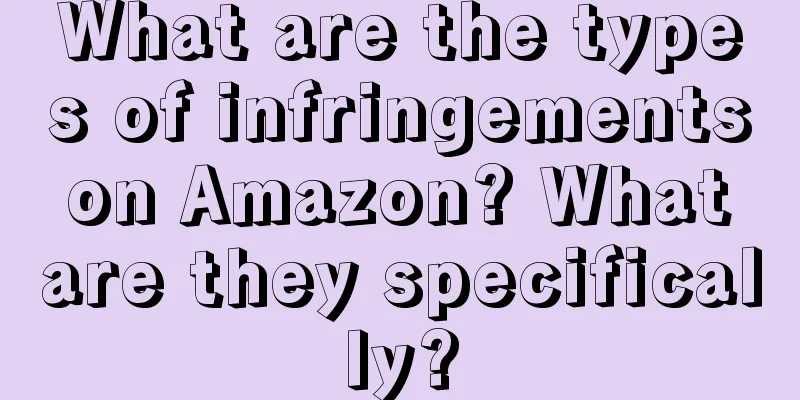Are AI summary products useless?

I sent the question to a friend and was not surprised by the results. He said: AI summary products are not easy to use. He explained: I often browse my friends' circle in the subway or coffee shop, and I see a lot of articles that I have to ask AI to read first because I am too tight on time. At first, I felt it was okay, but later I felt that it was all correct nonsense, no different from reading the table of contents or the underlined part in the article. It lacked novelty and missed the key parts. I agree with this and understand the other person's feelings. I have also encountered similar problems. After observing most of the reading AI software on the market, I found that helping with summarizing, reading, and analysis, and quickly forming an outline is the inevitable first step. I then began to think, when do I think it is useful, and when do I think it is useless? Is it really reliable to let AI help with summarization? What kind of summary do I need? How can I make use of different summary tools? After further research, I felt that there was a problem with the tool, and my personal approach seemed to be wrong too. 01Because my attention span is limited, I often wonder how I can focus on more valuable information when I read articles, podcasts, and videos every day. So, there are two ways to deal with it:
The so-called preprocessing means: actively find some high-quality information sources, subscribe to them, synchronize them to the mailbox at regular intervals every day, and check them together at night. What about reading assistance? That is, for the good content pushed by major information apps every day, AI can help read it in advance, let it sort out the core ideas and summaries. Then, based on the content given by AI, it will decide whether the article is worth my time to read again. This way, a complete process of efficiently obtaining valuable information is formed. Sounds smooth, right? But, you know what? I went through three iterations with the AI summary tool. At the beginning, AI reading was not popular yet. I used AI reading when I saw someone sharing a poster on WeChat Moments. I added a corporate WeChat account and forwarded the article to it, and it automatically generated content. The niche company did a good job and was easy to use. I even signed up for a one-year membership. Unexpectedly, the company went bankrupt not long after it was used. Since then, I vowed in my heart that I would never let this kind of software cut my leeks again. Having tasted the sweetness and my desire for the efficiency improvement brought by AI summary, I had to look for more options. Soon, I found the tool launched by Baidu Netdisk. The functions and usage of this tool are similar to the previous ones, and it is very convenient to use, so I used it for a while. However, the good times did not last long. As I subscribed to more and more documents, videos, and podcasts, I began to wonder if there was any software that could summarize and analyze video podcasts? During that time, when I returned home, I spent most of my time looking for suitable software, and I still remember it vividly. God rewards hard work, and I did find a lot. However, after a while, a new problem arose. I always switched between 3-4 softwares, and I didn’t get much done during the time I was supposed to focus on reading at night. Instead, I was seriously exhausted. This made me realize that if I had too many tools but my efficiency didn’t improve, it would distract me. what to do? Coincidentally, in mid-2023, domestic large-scale model applications began to explode. Alibaba launched "Tongyi Qianwen" and iFlytek launched "iFlytek Spark". At that time, I tried a few of them and thought to myself, great, I can finally solve all my problems with one click. But after using it for a while, new problems arose. I found that some of the content I was concerned about was not within the scope of AI's summary, and the content it summarized was not something I didn't care about. In fact, I even had to actively ask questions before it could provide relevant content. This is a headache. After going through the process of creating something from nothing and then adding requirements, I began to realize that AI would cause me to ignore some valuable information. 02What is valuable information? One word must be mentioned: accuracy. Why? Because the purpose of using AI to read is to hope that it can quickly give me the information I want, so that I can understand what the author wants to say and what the reasons are. If AI cannot remove the unimportant things and only give me the key information, then the information it gives may not be accurate enough. Therefore, accuracy is critical to the value of information. But how do I measure the accuracy of the answers given by AI? Later I discovered that each person and each AI has a different view of “accuracy”. Sometimes, what I think is important may not be important to AI, and vice versa. for example: A few days ago, I submitted a research report on artificial intelligence, which was almost 10,000 words, to Tongyi Qianwen. As a result, it simply summarized the content of each paragraph according to the subheading. Do you think this is accurate? To some extent, it is accurate. After all, this is the key information. But these key information, just like the truth, have been simplified into a single conclusion without giving the reasons behind it. What to do? I set my own standards. I believe that an article must meet at least three conditions for AI to summarize it:
Using these three points, I tried the AI reading functions of several companies. As expected, no matter how long the article was, the content they summarized was roughly between 300 and 400 words, and the longest was only 500 words. The requirements are too high, and many of them cannot be met. AI cannot yet understand the deep meaning and context of text or video content as deeply as humans. This makes me start to doubt: Is AI's so-called efficiency improvement a false proposition? Will it make me miss the opportunity to think and judge independently? Can I really entrust tasks to it with confidence? With these questions, I have been exploring the answers. I even complained in my WeChat Moments: The most useless AI products are “summary products.” They seem to save time, but in fact, they keep you further away from the “first-hand information source.” Why? There are four reasons:
The summarized contents are all commonplace truths, which seem to be monotonous and will make people miss a lot of really good contents. There is no shortcut to learn knowledge and gain wisdom. Most importantly, not all content is suitable for AI summary. A while ago, I listened to a podcast, which was very enjoyable to listen to, with music and chat, but the AI summary surprised me, because the spoken language of the chat and the mixed music made the answer given by the AI summary biased. So, it is difficult to judge. So why should I summarize it again? Wouldn't it be better to just read the table of contents and the abstract? What is the value of this seemingly concrete but highly abstract "content filter" product? Later, I looked beyond the product and found that the answer was not in AI, but in the reading behavior itself. 03Generally speaking, there are three stages in learning: before, during, and after. Before starting, you should grasp the main content; during the process, you should understand every detail in detail; at the end, you should review all the knowledge points. It's like a little bit like grinding coffee. At the beginning, you will choose what kind of coffee beans and ingredients, grind the coffee beans precisely during the process, and ensure that the water temperature and extraction time are just right, which represents a deep understanding of every detail; finally, you pour the coffee into the cup and drink it all. Before reading, just like reading the preface of a book or the plot synopsis of a movie, AI summary helps us filter content and navigate, allowing you to decide whether you want to learn more. Although the authors and editors of books and articles have prepared the table of contents and summaries, AI summaries are different from traditional summaries. It is difficult for AI to achieve accurate screening. In comparison, user book reviews and film reviews are more reliable. Now, summarization is also used to organize the middle part, and it can even help you condense a long article into a script; from this perspective, AI summarization helps us get rid of articles with poor content, allowing people to have more time to focus on important content. So, what happens after reading? The biggest benefit of AI summary is to the person who makes the summary, not the person who reads the summary. If you skip the process (the step of serious study) to summarize, it is just like Zhu Bajie eating ginseng fruit. If your goal is to understand the knowledge, then summarizing after reading can deepen the learning effect. Therefore, the purpose of AI summary tools is twofold: first, it is a tool to help us improve efficiency before and after the start and the end, and it is not responsible for the process; second, the use of such tools is to filter information more efficiently. To put it more directly, AI summaries cannot replace “reading behavior”. What is reading? I gave an article to AI, and AI gave me feedback. I found two or three valuable points in it, and stopped to learn. This is reading. Therefore, if you treat AI summary tools as reading, you will fall into the trap of learned helplessness. What are acquired traps? To put it simply, there are two points: First, we only hear a little bit of information and then hastily think we understand it all; second, sometimes, we are limited by the information we already know and form stereotypes. On the one hand, people need a lot of practice to truly understand knowledge. Reading and summarizing is like training for the brain. If we skip this training process or let AI replace this process, we actually learn nothing. On the other hand, if you over-rely on AI summary tools in the learning process and try to shorten the learning time, the quality of learning may deteriorate. Because people who really want to learn will not give up in-depth reading even if they use summary tools. Conversely: People who only pursue surface reading will find various excuses to say "I've read it" regardless of whether there are AI summarizing tools or not. Therefore, even if AI summarizes very accurately, this highly abstract method will make us miss the truly valuable details, leaving only the common truths that everyone knows; it is like someone has chewed the food and fed it to you, and you know that "eating is for growth", but to enjoy the food, you still have to experience it yourself. I suddenly thought of the old Chinese saying: If you don't eat grapes, you will say they are sour. Therefore, what you learn through "summarizing" is not real knowledge, but a self-righteous illusion (or vanity). However, in reality, there are always people who try to skip the learning process and get results directly. There is still a great demand for quickly acquiring knowledge. For example, various paid courses, interest classes, and even many people’s WeChat collections are filled with content that they will never read. Isn’t this just to satisfy the so-called "sense of gain"? Therefore, although the tool is good, the key lies in how the individual uses it. 04So, what inspiration can my attempt to restore the act of reading bring to you? From the perspective of a product manager, when developing "AI summary products", one should go beyond the traditional thinking of providing summaries before and after the start and involve the process links. A few days ago, I did a survey. The technical director of an information platform told me that based on data and user feedback, the frequency of use of the summary function is lower than that of other functions. Why is this? Users do not want summary services, but process indicators. Imagine this: You see a well-written article and you want AI to summarize it for you. I guess what you really want is not just a simple conclusion (what, regardless of what) given by AI, but to understand the core reason (Why) and method (How) of the article. Therefore, the AI tools designed by product managers should not simply compress information, but should be dynamic tools that promote learning behavior. Users want to use tools to extract key information and help themselves learn and absorb knowledge through in-depth analysis. If you don’t believe it, just look at my behavior. It is the best example. I gave up because I couldn't stand the AI summaries on major platforms. Then, I thought, why not develop an AI application myself? But since I can't write code, the idea is a bit unrealistic. What should I do? Later, I thought of a simple solution and wrote a prompt. In this instruction, I clearly wrote what role the AI should play, how to summarize and analyze the content, how to select the important parts, and what the output format should be. In this way, every time I want to summarize something, I send the command to AI, and AI will execute it after receiving the command. At first, this method was not bad, but it was a bit troublesome to send the command every time. Later, I set Prompt as a common keyboard phrase, which can be called out with one click. It's great. Therefore, product managers of AI summarization products should devote time to "process indicators" and write a few more lines of "summary" rules during development. Of course, as a user, you cannot rely entirely on the summary given by AI. If there is valuable content, you can take a closer look. In summaryThe answer will only come when you enter the scene. I believe that as people's needs change and technology advances, AI will help us one day. But remember, don't rely entirely on AI to learn and lose the ability to think independently. |
>>: From SQL Boy to Manager: Five Stages of Data Analyst Growth
Recommend
Where can I view Amazon store reviews? Can reviews be deleted?
As one of the world's largest e-commerce platf...
With a fan increase of nearly 3 million in one month, what stories from the Northeast did Sister Yu from the Northeast tell?
How did the newly-rising Internet celebrity Dongbe...
The inside story of JD.com's 10 billion yuan subsidy: 1 hour of secret training, free shipping for 9.9 yuan, the first shot will be fired on March 1
The news that JD.com will launch a "10 billio...
What should data analysts do when they are always faced with various difficulties?
Students who work with data may encounter many dif...
What does independent station operation involve? What needs to be done?
In the cross-border e-commerce industry, there is ...
One video generates 2 million yuan in revenue, but it is difficult for UP hosts to make content paid
Video platforms such as Bilibili and Douyin have t...
Store exploration economy, a new trend or a bubble? An in-depth analysis of the business logic behind it
As an emerging consumption model, the store explor...
"Outdated" male stars "harvest" aunts on video accounts
Middle-aged male celebrities have found a new stag...
What is the normal conversion rate of Shopee? Why is the conversion rate so low?
Nowadays, all major merchants who want to start a ...
Using AI to shoot short dramas for overseas markets can save 600,000 yuan per film
Short dramas have been very popular recently. Afte...
How to make operations more efficient?
Operational work is numerous and complex, requirin...
When Xianyu started to become “Taobao-like”
As the Xianyu platform began to charge service fee...
Will personal cross-border payment be regulated? Is there a limit on the amount?
For merchants doing cross-border e-commerce, the m...
Xiaohongshu marketing methodology for wine brands, increasing sales by 40% (6,000 words)
Recently, the rise of low-alcohol wine on Xiaohong...
How can Wish increase traffic? How much traffic will result in an order?
Merchants on the Wish platform are well aware that...









